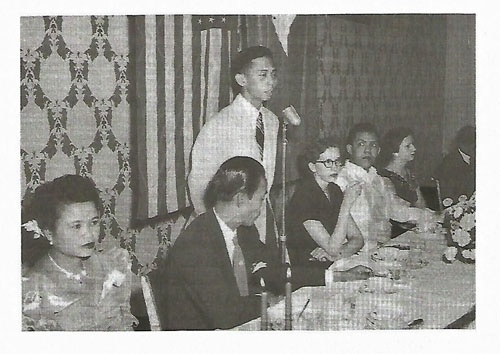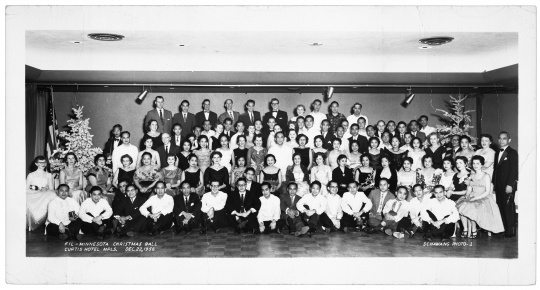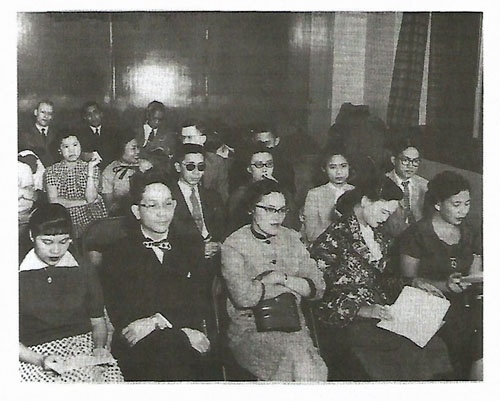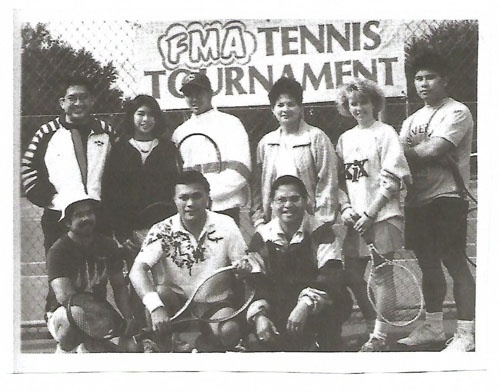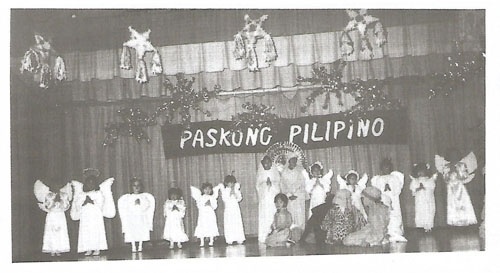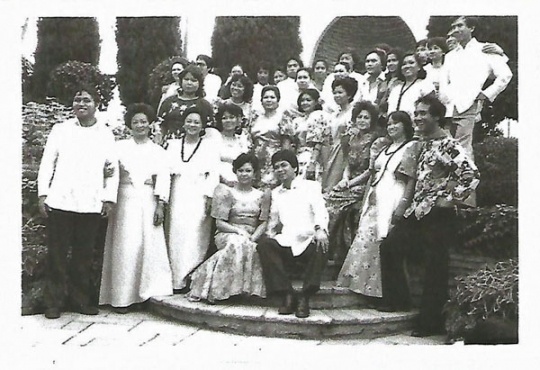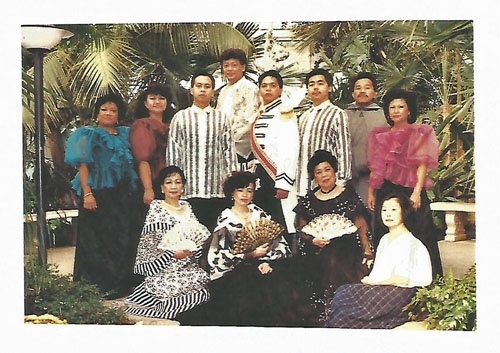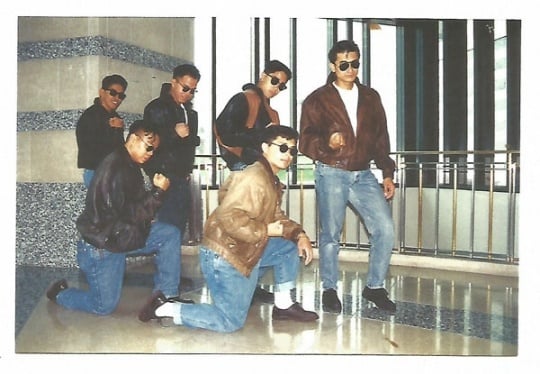The Fil-Minnesotan Association is a non-profit organization based in Plymouth, Minnesota, that serves Filipino Americans throughout the United States. Since its founding in 1953, it has provided education, nurtured Filipino cultural traditions, and prepared Filipino youth for leadership roles.
In 1953, twelve Filipinos, all University of Minnesota students, formed an organization dedicated to sharing companionship, Filipino news, and Filipino food. Soon after, the fledgling organization, under the leadership of Dr. Rene Dawis and Lily Salcedo, drafted a constitution and adopted the name Fil-Minnesotan Association (FMA).
In 1966, FMA’s then-president, Dr. Emmanuel Balcos, initiated a fundraising project to establish a Filipiniana section at the University of Minnesota Library. That project became the FMA-produced play “Portrait of the Artist as Filipino,” presented at the Heritage Hall of the Minneapolis Public Library and directed by graduate student Antonio Mabesa. It had a cast of University of Minnesota Filipino graduate students, with theater major Lita Vargas in the lead. Minneapolis Mayor Arthur Nafthalin headed the list of dignitaries who attended the premiere performance.
After Dr. Nelson Paguyo became president in 1974, FMA put more effort into increasing the visibility of the Filipino American community in the Twin Cities. An FMA-organized dance troupe led by choreographer Carie Evangelista performed at churches, colleges, and cultural centers. In 1976, FMA member Abe Malicsi initiated the first Paskong Pilipino, a Christmas celebration for Filipino American children.
Later that year, a new undertaking began: an original musical production focusing on the culture and history of the Philippines, written by Noli Celestino and directed by Lita Malicsi (formerly Vargas). This developed into the Filipiniana series, created by the Celestino–Malicsi duo with Carie Evangelista, Marietta Docto, and Luis Siojo on the choreographic team. The series created an appreciation of Philippine heritage and values among the new generation of American-born Filipinos.
A major FMA fundraiser that started in Dennis Diaz’s presidency in 1983 benefited humanitarian projects, including financial aid for the victims of the eruption of Mt. Pinatubo in the Philippines. In 1992, the Children’s Heart Fund received help from FMA for the establishment of a cardiac center in the Philippines for needy Filipino children with heart disease.
In 1992, after becoming FMA president, Lita Malicsi authored the association’s mission statement: “to provide socio-civic, educational, cultural and artistic opportunities to the community it is committed to serve.” In pursuit of this mission, FMA conducted its first strategic planning campaign, embarking on projects that responded to the unique needs and issues facing the Filipino community. Parent–youth seminars on the topic “Relationships in a Bi-cultural Family” were conducted in partnership with the University of Minnesota Center for Youth Development Research and social agencies.
After the campaign, FMA deepened its engagement in the arts and humanities. In 1994, Malicsi started the Klasika Series—home concerts presenting musically trained artists in the community. The association’s major extravaganza, MUSIKAL!, premiered in 1995 at the World Theater in St. Paul. Its success and public appeal stirred requests for the next production, MUSIKAL 2. Subtitled “America, Can I Tell You How I Feel,” it addressed societal issues faced by Filipinos and other immigrants in America. In 1998, President Dodge Flores launched Town Hall meetings where community members discussed concerns with FMA leaders. The association also held free clinics to provide health screening services to the underserved.
The 1990s saw FMA’s continued growth. As an offshoot of the parent–youth seminar series on bi-cultural issues, the Fil-Minnesotan Youth organization was formed, with Sharon Lira as president. This was followed by the affiliation of the Fil-Minnesotan Seniors with FMA, with Fred de los Reyes as president.
In 2007, President Boo Dava launched the first FMA basketball tournament, an annual event that brought the community together. The following year, President Darwin Yasis unveiled the Four Pillars of the association: FMA Arts and Culture, Akademy, Helping Hands, and Community Development.
In 2009, the FMA realized its dream of establishing a “home away from home”: the Philippine Center of Minnesota, located at 1380 Frost Avenue in Maplewood.










